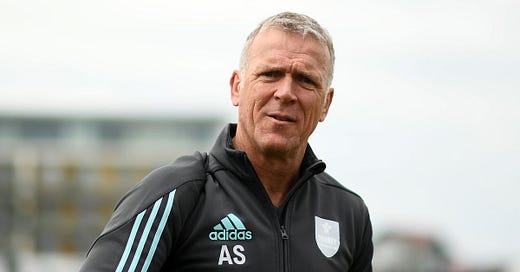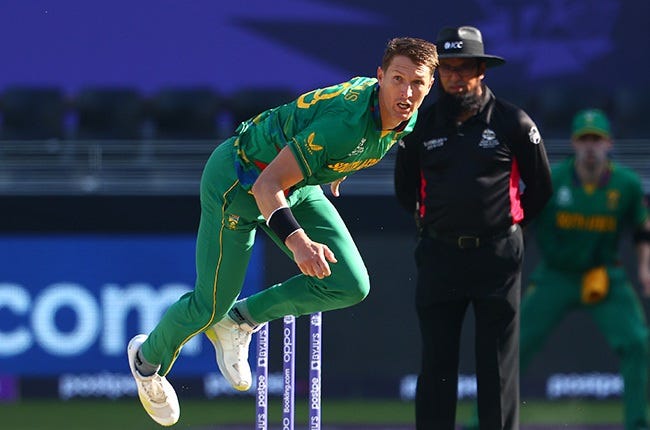Global Cricket is not about to change soon, forever. It already has. Just because around 30 of the game’s biggest names haven’t yet signed multi-tournament, multi-year deals with IPL Franchises, it doesn’t mean it won’t happen. It will, with more to follow.
It’s just that, it’s not that simple. A top-ranked England player earns £1million a year from a central contract with the ECB. A top-ranked Australian player earns A$3million a year. The top ranked players (outside India) earn a fraction of that with their national contracts. IPL Franchises are offering 3-4 times that amount for an annual contract. Up to $5million a year for Jos Buttler, for example.
It’s simple maths, right? Whereas England and Australian players are faced with a choice of tripling or quadrupling their annual income by playing T20 Franchise cricket, South Africans, West Indians, Sri Lankans and New Zealanders are looking at between 15 and 20 times more than they can earn at home. That’s not an exaggeration.
But where would they live in between the IPL and all of its burgeoning off-shoot leagues? More to the point, where would they train and play games in order to stay match-fit for their shiny, new lives? Let’s start with the situation in England where professionals outside of central contracts have 12-month deals with their counties.
“We’ll see those contracts changing in the future,” said former England great and now Director of Cricket at the country’s richest county, reigning Championship holders, Surrey. “Some players might be offered four-year contracts, if they play all formats, but if you’re only a really good T20 player then you’ll be contracted to The Hundred and you’ll only be available to your county for the Blast, that’s six weeks of the season.
“Does that player need to be on a multi-year contract, or even a 12-month contract? That’s the real question. They can still earn, and be paid, really good money for that six-week period, but should the county be responsible for that player outside that six-week period, and perhaps the two-week period building up to the tournament? Two months a year, effectively,” asked Stewart during an interview on TalkSport’s Cricket Collective podcast last week.
“The rest of the time they are effectively a freelance cricketer. They can go off and play for the Mumbai Indians or the Rajasthan Royals, or in the Big Bash or wherever else it might be, but currently the way it works is that they are under contract to us, they go away and play elsewhere, and when they come back they want coaching time, coaching man hours in the indoor centre, the benefit of the best coaches advising them on their game, just to get ready to go off and play in another Franchise competition somewhere else,” said Stewart, known for straight-talking but not for being outspoken.
“Oh, and by the way, I’ve got a little injury so can I get treated by the Surrey physio, the Surrey doctor, the Surrey medical staff, and can I get rehab as well? Just so they can go off and play another tournament somewhere else in the world. Oh, and by the way, I’m not fit for the Blast, sorry. So, who looks after them for the rest of the year?” Stewart said.
“I’m looking ahead in my crystal ball, but it wouldn’t surprise me at all if contracts change in the coming years. We’ve already seen the start of it with England letting three or four players take part in the PSL instead of being available for the tour of Bangladesh earlier this year for financial reasons.
“Fair enough, that was their decision – they might not have been first-choice players for England, so they made their choice. But England will be reviewing their contracts and that will have a knock-on effect at county level. If a county cricketer gets injured playing for the Sydney Sixers, they don’t put him back together again. They come back to their county. Is that right? I’ll leave that up to other people to decide,” Stewart said.
The situation is similar but greatly starker in South Africa where the domestic game cannot survive if its best players are nurtured through the system at considerable cost with minimal funds, and then cherry-picked away to be a part of a global IPL Franchise. And returning home from time to time to use practise facilities and, perhaps, play a few games for their provincial team.
English counties and South African provinces will have to wise-up. Committing themselves to developing young players means they must be guaranteed a return on their investment. County and provincial cricketers should understand the importance of significant ‘release clauses’ from their contracts should they become attractive to IPL teams and, when they do return to play for their ’home’ teams, they should be paid by their new employers.
The Mumbai Indians, Chennai Super Kings and Rajasthan Royals all have Academies – most of the Franchises do – but will they produce new players without regular, competitive domestic cricket? Maybe they will. Perhaps an IPL ‘2nd XI’ competition will be formed.
Until then, counties and provinces might need to place a greater value on their worth – and charge for it. North West love Dwaine Pretorius, he is ‘one of them’. We all love him – wonderful man and fabulous cricketer. Currently being paid tremendously by CSK. Every hour he spends using the excellent facilities in Potch should be income-generating. The same applies to all the current IPL players. Pay for physio, net sessions, coaching and anything else.
Nothing personal. Good luck to you all, we wish you well and still love you. But your decision to go freelance means your membership has lapsed. You now need to pay.






Hi Andrew,
I'm not even sure it's possible (or even necessary) to 'insist' that players are available for all of their country's international commitments. South Africa have a two-Test 'series' against Bangladesh next as part of their WTC fixtures. It may well clash with The Hundred or even Major League Cricket in the USA. Anrich Nortje and Kagiso Rabada could be offered $200,000 to play in America. (Nortje already has been.) Would it be right/fair to insist that he make himself available for the Tests?
Guys like Davie Miller have undoubtedly been hard-done by in years past but I suspect those days are over now...
Couldn’t agree more.
Totally comcur.
Am in Aus now and very impressed with their love of so many sports.
( of course they are a wealthy first world country but their passion for many sports equals ours for rugby.).
In cricket, they will be back